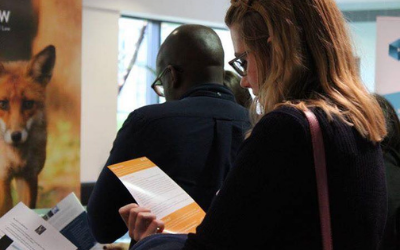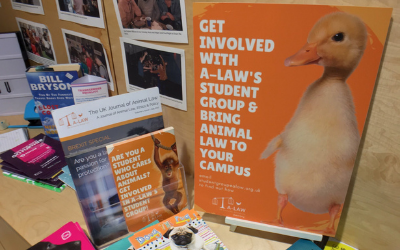Steve Wise
Steven M. Wise is President of the Nonhuman Rights Project (NhRP), which seeks to persuade high courts that at least certain nonhuman animals are “legal” persons entitled to certain legal rights.

Steven M. Wise is President of the Nonhuman Rights Project (NhRP), which seeks to persuade high courts that at least certain nonhuman animals are “legal” persons entitled to certain legal rights. He has practiced animal protection law for 33 years throughout the U.S and is admitted to the Massachusetts Bar. Steve has written four books, including “Rattling the Cage – Toward Legal Rights for Animals”, and “Though the Heavens May Fall”, which tells the story of England’s famous Somerset case. He has taught “Animal Rights Law” and “Animal Rights Jurisprudence” at the Harvard Law School, University of Miami, and John Marshall Law Schools, and teaches presently at the Lewis and Clark, Vermont, and St. Thomas law Schools, and Barcelona’s Autonomous University’s law school.
Could you tell us a little bit about Nonhuman Rights Project?
The Nonhuman Rights Project is a group of 50 to 60 lawyers, law students, law professors, natural scientists, social scientists, mathematicians, and others who seek to persuade high courts that at least such nonhuman animals as apes, cetaceans, and elephants are legal persons with the capacity for fundamental legal rights. In December, 2013, the NhRP filed three petitions for writs of habeas corpus cases on behalf of the four chimpanzees imprisoned in New York. I look forward to lecturing in London about them in early June.
Did you always know you wanted to be a lawyer?
I was interested in science, and earned a BS in Chemistry. I only began thinking of law after I graduated college. My science education has proven invaluable to my work as an animal slave, now animal rights, lawyer, and for years I have subscribed to SCIENCE, NATURE, and SCIENTIFIC AMERICAN.
When did you decide you wanted to practice in Animal Law?
I read Peter Singer’s book, Animal Libration, and decided to practice animal slave law after I finished. Within a decade I was beginning to prepare lawsuits that would allow me to practice Animal Rights Law.
How much of your practice is Animal Law?
My practice is entirely animal slave and animal rights law, though I occasionally take a non-animal law case if asked to by a student or client.
What is the rest of your practice?
I occasionally take a non-animal law case if asked to by a student or client; it could be about anything. I am currently involved in a large and complex trust case on behalf of a former student, who is a trust beneficiary.
What animal welfare cases are you most proud of?
I am most proud of the three habeas corpus cases the Nonhuman Rights Project filed in December, 2013. Please go to the website nonhanmanrights.org to view the petitions for habeas corpus and the supporting memoranda that the NhRP filed.
Do you enjoy the work?
I love my work. I litigate. I run the Nonhuman Rights Project. I teach Animal Rights Jurisprudence at four law schools. I research and write books and law review articles. I lecture around the world on animal rights jurisprudence. I am privileged to meet extraordinary people committed to ending the slavery of all nonhuman animals.
How can a new lawyer steer their practice towards this area?
A young lawyer needs to obtain a solid background in law generally, then in the history of animal slave law, and the coming field of animal rights jurisprudence. Read widely in law and science. There are numerous potential clients. Most don’t know you exist. Think of ways to make them learn about what you do. Write newspaper articles. Make yourself available for television and radio shows. Be creative. Ignore those who say negative things about you. Read my books. Take my classes.
Why do you feel animal law is so important?
Many nonhuman animals live rich and complex lives. Because they are considered legal things, they are invisible to civil law, and amendable to being tortured and killed nearly at whim. An Animal Rights Jurisprudence is the way to protect them.
What do you think the future holds for animal law?
Interest in animal law, especially animal rights law and jurisprudence, will continue to intensify. As this occurs, judges and legislators will begin to get a better grasp on what we are arguing.
Follow Us !
WE NEED YOUR SUPPORT
We rely upon membership income and donations to carry out our work. Please join us or donate and support our work.
Become a Volunteer! If you like what we’re doing…
why not find out about the different ways you can get involved in our important work?






